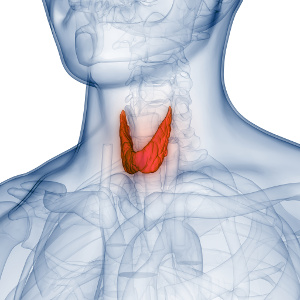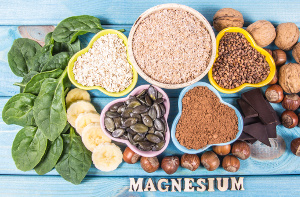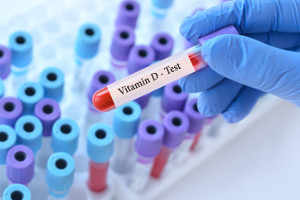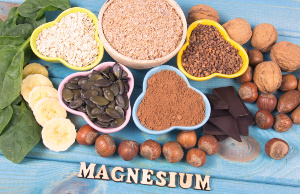afterLoad (456.3KB) (603μs)
afterInitialise (1.27MB) (74.38ms)
afterRoute (827.66KB) (21.68ms)
beforeRenderComponent com_content (35.91KB) (9.42ms)
Before Access::preloadComponents (all components) (193.63KB) (9.77ms)
After Access::preloadComponents (all components) (98.07KB) (4.01ms)
Before Access::preloadPermissions (com_content) (1.6KB) (23μs)
After Access::preloadPermissions (com_content) (3.29MB) (40.87ms)
Before Access::getAssetRules (id:62 name:com_content.category.20) (130.65KB) (143μs)
After Access::getAssetRules (id:62 name:com_content.category.20) (7.38KB) (5.78ms)
Before Access::getAssetRules (id:8 name:com_content) (51.77KB) (67.25ms)
After Access::getAssetRules (id:8 name:com_content) (6.17KB) (5.45ms)
afterRenderComponent com_content (1.46MB) (352ms)
afterDispatch (41.29KB) (7.13ms)
beforeRenderRawModule mod_articles_category (READ MORE...) (398.66KB) (19.79ms)
afterRenderRawModule mod_articles_category (READ MORE...) (68.55KB) (348ms)
beforeRenderRawModule mod_custom (BOOST YOUR IMMUNE DEFENSE) (6.45KB) (39μs)
afterRenderRawModule mod_custom (BOOST YOUR IMMUNE DEFENSE) (4.42KB) (268μs)
beforeRenderRawModule mod_articles_latest (Latest news) (976B) (15μs)
afterRenderRawModule mod_articles_latest (Latest news) (71.77KB) (358ms)
beforeRenderRawModule mod_tags_popular (Search) (2.09KB) (34μs)
afterRenderRawModule mod_tags_popular (Search) (27.89KB) (343ms)
beforeRenderRawModule mod_custom (the Vitamin and Mineral Guide) (960B) (41μs)
afterRenderRawModule mod_custom (the Vitamin and Mineral Guide) (1.02KB) (71μs)
beforeRenderRawModule mod_custom (Weight loss that works) (736B) (12μs)
afterRenderRawModule mod_custom (Weight loss that works) (928B) (23μs)
beforeRenderRawModule mod_custom (Get additionel and more detailed knowledge ) (752B) (10μs)
afterRenderRawModule mod_custom (Get additionel and more detailed knowledge ) (944B) (20μs)
beforeRenderRawModule mod_custom (Q10 goes by many names) (736B) (10μs)
afterRenderRawModule mod_custom (Q10 goes by many names) (928B) (20μs)
beforeRenderRawModule mod_custom (Check this before you buy a Q10 product) (752B) (9μs)
afterRenderRawModule mod_custom (Check this before you buy a Q10 product) (944B) (18μs)
beforeRenderRawModule mod_custom (Are you taking supplements) (736B) (9μs)
afterRenderRawModule mod_custom (Are you taking supplements) (2.28KB) (19μs)
beforeRenderRawModule mod_custom (Antiaging) (720B) (9μs)
afterRenderRawModule mod_custom (Antiaging) (912B) (18μs)
beforeRenderRawModule mod_custom (Exercise) (720B) (10μs)
afterRenderRawModule mod_custom (Exercise) (912B) (17μs)
beforeRenderRawModule mod_custom (Useful Links) (720B) (9μs)
afterRenderRawModule mod_custom (Useful Links) (1.02KB) (18μs)
beforeRenderModule mod_articles_category (READ MORE...) (332.2KB) (9.47ms)
afterRenderModule mod_articles_category (READ MORE...) (1.25KB) (76μs)
beforeRenderModule mod_custom (BOOST YOUR IMMUNE DEFENSE) (6.81KB) (18μs)
afterRenderModule mod_custom (BOOST YOUR IMMUNE DEFENSE) (1.28KB) (36μs)
beforeRenderModule mod_articles_latest (Latest news) (592B) (13μs)
afterRenderModule mod_articles_latest (Latest news) (1.27KB) (23μs)
beforeRenderModule mod_tags_popular (Search) (1.73KB) (26μs)
afterRenderModule mod_tags_popular (Search) (1.27KB) (22μs)
beforeRenderModule mod_custom (the Vitamin and Mineral Guide) (1.31KB) (10μs)
afterRenderModule mod_custom (the Vitamin and Mineral Guide) (1.28KB) (19μs)
beforeRenderModule mod_custom (Weight loss that works) (336B) (16μs)
afterRenderModule mod_custom (Weight loss that works) (1.27KB) (24μs)
beforeRenderModule mod_custom (Get additionel and more detailed knowledge ) (368B) (9μs)
afterRenderModule mod_custom (Get additionel and more detailed knowledge ) (1.3KB) (21μs)
beforeRenderModule mod_custom (Q10 goes by many names) (336B) (9μs)
afterRenderModule mod_custom (Q10 goes by many names) (1.27KB) (19μs)
beforeRenderModule mod_custom (Check this before you buy a Q10 product) (352B) (9μs)
afterRenderModule mod_custom (Check this before you buy a Q10 product) (1.28KB) (20μs)
beforeRenderModule mod_custom (Are you taking supplements) (352B) (8μs)
afterRenderModule mod_custom (Are you taking supplements) (1.28KB) (20μs)
beforeRenderModule mod_custom (Antiaging) (336B) (9μs)
afterRenderModule mod_custom (Antiaging) (1.27KB) (19μs)
beforeRenderModule mod_custom (Exercise) (336B) (9μs)
afterRenderModule mod_custom (Exercise) (1.25KB) (19μs)
beforeRenderModule mod_custom (Useful Links) (336B) (9μs)
afterRenderModule mod_custom (Useful Links) (3.77KB) (19μs)
beforeRenderRawModule mod_menu (Main Menu - English) (37.51KB) (6.04ms)
afterRenderRawModule mod_menu (Main Menu - English) (190.16KB) (14.02ms)
beforeRenderModule mod_menu (Main Menu - English) (720B) (7μs)
afterRenderModule mod_menu (Main Menu - English) (4.86KB) (81μs)
beforeRenderRawModule mod_languages (Sprogskift) (3.94KB) (26μs)
afterRenderRawModule mod_languages (Sprogskift) (21.84KB) (11.3ms)
beforeRenderModule mod_languages (Sprogskift) (720B) (9μs)
afterRenderModule mod_languages (Sprogskift) (5.31KB) (28μs)
beforeRenderRawModule mod_finder () (6.34KB) (16μs)
afterRenderRawModule mod_finder () (68.96KB) (9.49ms)
beforeRenderModule mod_finder () (704B) (6μs)
afterRenderModule mod_finder () (3.29KB) (49μs)
beforeRenderRawModule mod_custom () (6.62KB) (1.41ms)
afterRenderRawModule mod_custom () (26.52KB) (2.97ms)
beforeRenderModule mod_custom () (704B) (9μs)
afterRenderModule mod_custom () (1.23KB) (1.16ms)
beforeRenderRawModule mod_menu (Main Menu - English) (5.07KB) (168μs)
afterRenderRawModule mod_menu (Main Menu - English) (6.3KB) (2.02ms)
beforeRenderModule mod_menu (Main Menu - English) (720B) (7μs)
afterRenderModule mod_menu (Main Menu - English) (1.25KB) (63μs)
beforeRenderRawModule mod_languages (Sprogskift Mobil) (912B) (22μs)
afterRenderRawModule mod_languages (Sprogskift Mobil) (3.89KB) (2.05ms)
beforeRenderModule mod_languages (Sprogskift Mobil) (720B) (8μs)
afterRenderModule mod_languages (Sprogskift Mobil) (1.27KB) (40μs)
beforeRenderRawModule mod_finder () (2.3KB) (15μs)
afterRenderRawModule mod_finder () (6.29KB) (3.74ms)
beforeRenderModule mod_finder () (704B) (7μs)
afterRenderModule mod_finder () (1.23KB) (57μs)
beforeRenderRawModule mod_custom () (8.66KB) (2.99ms)
afterRenderRawModule mod_custom () (904B) (243μs)
beforeRenderModule mod_custom () (704B) (4μs)
afterRenderModule mod_custom () (2.43KB) (38μs)
beforeRenderRawModule mod_custom () (688B) (117μs)
afterRenderRawModule mod_custom () (896B) (3.11ms)
beforeRenderModule mod_custom () (704B) (9μs)
afterRenderModule mod_custom () (2.71KB) (50μs)
afterRender (285.8KB) (44.46ms)
| 1 x afterRenderRawModule mod_articles_latest (Latest news) (71.77KB) (20.03%) | 358.11ms |
| 1 x afterRenderComponent com_content (1.46MB) (19.69%) | 352.09ms |
| 1 x afterRenderRawModule mod_articles_category (READ MORE...) (68.55KB) (19.45%) | 347.78ms |
| 1 x afterRenderRawModule mod_tags_popular (Search) (27.89KB) (19.17%) | 342.78ms |
| 1 x afterInitialise (1.27MB) (4.16%) | 74.38ms |
| 1 x Before Access::getAssetRules (id:8 name:com_content) (51.77KB) (3.76%) | 67.25ms |
| 1 x afterRender (285.8KB) (2.49%) | 44.46ms |
| 1 x After Access::preloadPermissions (com_content) (3.29MB) (2.29%) | 40.87ms |
| 1 x afterRoute (827.66KB) (1.21%) | 21.68ms |
| 1 x beforeRenderRawModule mod_articles_category (READ MORE...) (398.66KB) (1.11%) | 19.79ms |
| 1 x afterRenderRawModule mod_menu (Main Menu - English) (190.16KB) (0.78%) | 14.02ms |
| 1 x afterRenderRawModule mod_languages (Sprogskift) (21.84KB) (0.63%) | 11.30ms |
| 1 x Before Access::preloadComponents (all components) (193.63KB) (0.55%) | 9.77ms |
| 1 x afterRenderRawModule mod_finder () (68.96KB) (0.53%) | 9.49ms |
| 1 x beforeRenderModule mod_articles_category (READ MORE...) (332.2KB) (0.53%) | 9.47ms |
| 1 x beforeRenderComponent com_content (35.91KB) (0.53%) | 9.42ms |
| 1 x afterDispatch (41.29KB) (0.4%) | 7.13ms |
| 1 x beforeRenderRawModule mod_menu (Main Menu - English) (37.51KB) (0.34%) | 6.04ms |
| 1 x After Access::getAssetRules (id:62 name:com_content.category.20) (7.38KB) (0.32%) | 5.78ms |
| 1 x After Access::getAssetRules (id:8 name:com_content) (6.17KB) (0.31%) | 5.45ms |
| 1 x After Access::preloadComponents (all components) (98.07KB) (0.22%) | 4.01ms |
| 1 x afterRenderRawModule mod_finder () (6.29KB) (0.21%) | 3.74ms |
| 1 x afterRenderRawModule mod_custom () (896B) (0.17%) | 3.11ms |
| 1 x beforeRenderRawModule mod_custom () (8.66KB) (0.17%) | 2.99ms |
| 1 x afterRenderRawModule mod_custom () (26.52KB) (0.17%) | 2.97ms |
| 1 x afterRenderRawModule mod_languages (Sprogskift Mobil) (3.89KB) (0.11%) | 2.05ms |
| 1 x afterRenderRawModule mod_menu (Main Menu - English) (6.3KB) (0.11%) | 2.02ms |
| 1 x beforeRenderRawModule mod_custom () (6.62KB) (0.08%) | 1.41ms |
| 1 x afterRenderModule mod_custom () (1.23KB) (0.06%) | 1.16ms |
| 1 x afterLoad (456.3KB) (0.03%) | 603μs |
| 1 x afterRenderRawModule mod_custom (BOOST YOUR IMMUNE DEFENSE) (4.42KB) (0.02%) | 268μs |
| 1 x afterRenderRawModule mod_custom () (904B) (0.01%) | 243μs |
| 1 x beforeRenderRawModule mod_menu (Main Menu - English) (5.07KB) (0.01%) | 168μs |
| 1 x Before Access::getAssetRules (id:62 name:com_content.category.20) (130.65KB) (0.01%) | 143μs |
| 1 x beforeRenderRawModule mod_custom () (688B) (0.01%) | 117μs |
| 1 x afterRenderModule mod_menu (Main Menu - English) (4.86KB) (0%) | 81μs |
| 1 x afterRenderModule mod_articles_category (READ MORE...) (1.25KB) (0%) | 76μs |
| 1 x afterRenderRawModule mod_custom (the Vitamin and Mineral Guide) (1.02KB) (0%) | 71μs |
| 1 x afterRenderModule mod_menu (Main Menu - English) (1.25KB) (0%) | 63μs |
| 1 x afterRenderModule mod_finder () (1.23KB) (0%) | 57μs |
| 1 x afterRenderModule mod_custom () (2.71KB) (0%) | 50μs |
| 1 x afterRenderModule mod_finder () (3.29KB) (0%) | 49μs |
| 1 x beforeRenderRawModule mod_custom (the Vitamin and Mineral Guide) (960B) (0%) | 41μs |
| 1 x afterRenderModule mod_languages (Sprogskift Mobil) (1.27KB) (0%) | 40μs |
| 1 x beforeRenderRawModule mod_custom (BOOST YOUR IMMUNE DEFENSE) (6.45KB) (0%) | 39μs |
| 1 x afterRenderModule mod_custom () (2.43KB) (0%) | 38μs |
| 1 x afterRenderModule mod_custom (BOOST YOUR IMMUNE DEFENSE) (1.28KB) (0%) | 36μs |
| 1 x beforeRenderRawModule mod_tags_popular (Search) (2.09KB) (0%) | 34μs |
| 1 x afterRenderModule mod_languages (Sprogskift) (5.31KB) (0%) | 28μs |
| 1 x beforeRenderModule mod_tags_popular (Search) (1.73KB) (0%) | 26μs |
| 1 x beforeRenderRawModule mod_languages (Sprogskift) (3.94KB) (0%) | 26μs |
| 1 x afterRenderModule mod_custom (Weight loss that works) (1.27KB) (0%) | 24μs |
| 1 x afterRenderRawModule mod_custom (Weight loss that works) (928B) (0%) | 23μs |
| 1 x Before Access::preloadPermissions (com_content) (1.6KB) (0%) | 23μs |
| 1 x afterRenderModule mod_articles_latest (Latest news) (1.27KB) (0%) | 23μs |
| 1 x afterRenderModule mod_tags_popular (Search) (1.27KB) (0%) | 22μs |
| 3 x beforeRenderModule mod_custom () (704B) (0%) | 22μs |
| 1 x beforeRenderRawModule mod_languages (Sprogskift Mobil) (912B) (0%) | 22μs |
| 1 x afterRenderModule mod_custom (Get additionel and more detailed knowledge ) (1.3KB) (0%) | 21μs |
| 1 x afterRenderRawModule mod_custom (Get additionel and more detailed knowledge ) (944B) (0%) | 20μs |
| 1 x afterRenderRawModule mod_custom (Q10 goes by many names) (928B) (0%) | 20μs |
| 1 x afterRenderModule mod_custom (Check this before you buy a Q10 product) (1.28KB) (0%) | 20μs |
| 1 x afterRenderModule mod_custom (Are you taking supplements) (1.28KB) (0%) | 20μs |
| 1 x afterRenderRawModule mod_custom (Are you taking supplements) (2.28KB) (0%) | 19μs |
| 1 x afterRenderModule mod_custom (Antiaging) (1.27KB) (0%) | 19μs |
| 1 x afterRenderModule mod_custom (Useful Links) (3.77KB) (0%) | 19μs |
| 1 x afterRenderModule mod_custom (the Vitamin and Mineral Guide) (1.28KB) (0%) | 19μs |
| 1 x afterRenderModule mod_custom (Q10 goes by many names) (1.27KB) (0%) | 19μs |
| 1 x afterRenderModule mod_custom (Exercise) (1.25KB) (0%) | 19μs |
| 1 x afterRenderRawModule mod_custom (Useful Links) (1.02KB) (0%) | 18μs |
| 1 x afterRenderRawModule mod_custom (Check this before you buy a Q10 product) (944B) (0%) | 18μs |
| 1 x afterRenderRawModule mod_custom (Antiaging) (912B) (0%) | 18μs |
| 1 x beforeRenderModule mod_custom (BOOST YOUR IMMUNE DEFENSE) (6.81KB) (0%) | 18μs |
| 1 x afterRenderRawModule mod_custom (Exercise) (912B) (0%) | 17μs |
| 1 x beforeRenderModule mod_custom (Weight loss that works) (336B) (0%) | 16μs |
| 1 x beforeRenderRawModule mod_finder () (6.34KB) (0%) | 16μs |
| 1 x beforeRenderRawModule mod_finder () (2.3KB) (0%) | 15μs |
| 1 x beforeRenderRawModule mod_articles_latest (Latest news) (976B) (0%) | 15μs |
| 2 x beforeRenderModule mod_menu (Main Menu - English) (720B) (0%) | 14μs |
| 1 x beforeRenderModule mod_articles_latest (Latest news) (592B) (0%) | 13μs |
| 2 x beforeRenderModule mod_finder () (704B) (0%) | 13μs |
| 1 x beforeRenderRawModule mod_custom (Weight loss that works) (736B) (0%) | 12μs |
| 1 x beforeRenderRawModule mod_custom (Q10 goes by many names) (736B) (0%) | 10μs |
| 1 x beforeRenderRawModule mod_custom (Exercise) (720B) (0%) | 10μs |
| 1 x beforeRenderModule mod_custom (the Vitamin and Mineral Guide) (1.31KB) (0%) | 10μs |
| 1 x beforeRenderRawModule mod_custom (Get additionel and more detailed knowledge ) (752B) (0%) | 10μs |
| 1 x beforeRenderRawModule mod_custom (Check this before you buy a Q10 product) (752B) (0%) | 9μs |
| 1 x beforeRenderRawModule mod_custom (Are you taking supplements) (736B) (0%) | 9μs |
| 1 x beforeRenderRawModule mod_custom (Antiaging) (720B) (0%) | 9μs |
| 1 x beforeRenderRawModule mod_custom (Useful Links) (720B) (0%) | 9μs |
| 1 x beforeRenderModule mod_custom (Get additionel and more detailed knowledge ) (368B) (0%) | 9μs |
| 1 x beforeRenderModule mod_custom (Q10 goes by many names) (336B) (0%) | 9μs |
| 1 x beforeRenderModule mod_custom (Check this before you buy a Q10 product) (352B) (0%) | 9μs |
| 1 x beforeRenderModule mod_custom (Antiaging) (336B) (0%) | 9μs |
| 1 x beforeRenderModule mod_custom (Exercise) (336B) (0%) | 9μs |
| 1 x beforeRenderModule mod_custom (Useful Links) (336B) (0%) | 9μs |
| 1 x beforeRenderModule mod_languages (Sprogskift) (720B) (0%) | 9μs |
| 1 x beforeRenderModule mod_custom (Are you taking supplements) (352B) (0%) | 8μs |
| 1 x beforeRenderModule mod_languages (Sprogskift Mobil) (720B) (0%) | 8μs |
 During a woman’s pregnancy, vitamin D is important for the growth, development, and general health of the baby. Apparently, maternal vitamin D deficiency during pregnancy increases the risk of boys developing more fat tissue during their first years of life, which makes them more prone to overweight in childhood and later in life. This was reported in a Spanish population study that is published in Nutrients. Because both overweight and vitamin D deficiency are so widespread, it is essential for pregnant women to make sure as a minimum to follow the official recommendations for vitamin D supplementation. Also, there is no read to avoid sun exposure because sunshine is our primary vitamin D source during the summer period. Just make sure not to get a sunburn.
During a woman’s pregnancy, vitamin D is important for the growth, development, and general health of the baby. Apparently, maternal vitamin D deficiency during pregnancy increases the risk of boys developing more fat tissue during their first years of life, which makes them more prone to overweight in childhood and later in life. This was reported in a Spanish population study that is published in Nutrients. Because both overweight and vitamin D deficiency are so widespread, it is essential for pregnant women to make sure as a minimum to follow the official recommendations for vitamin D supplementation. Also, there is no read to avoid sun exposure because sunshine is our primary vitamin D source during the summer period. Just make sure not to get a sunburn.







 Heart failure is a disease with a variety of different symptoms and a high mortality rate because the heart’s pumping function is impaired. Heart failure is also characterized by chronic inflammation that worsens the prognosis. Apparently, fish oil supplementation can reduce chronic inflammation, according to a meta-analysis that is published in Heart Failure Reviews. In fact, eating more
Heart failure is a disease with a variety of different symptoms and a high mortality rate because the heart’s pumping function is impaired. Heart failure is also characterized by chronic inflammation that worsens the prognosis. Apparently, fish oil supplementation can reduce chronic inflammation, according to a meta-analysis that is published in Heart Failure Reviews. In fact, eating more  Weight-challenged children and teenagers have grown to become a global health threat, and the problem became even worse during the corona pandemic. Overweight is linked to a number of health problems, including non-alcoholic fatty liver disease that sets the stage for type 2 diabetes and other serious ailments. In a new review article that is published in Nutrients, researchers look closer at how a carbohydrate-restricted diet or the traditional Mediterranean diet can help to counteract the development of overweight and non-alcoholic fatty liver disease. Also, supplementation with vitamin E, vitamin D, fish oil, and probiotics can block the development of non-alcoholic fatty liver via different metabolic parameters.
Weight-challenged children and teenagers have grown to become a global health threat, and the problem became even worse during the corona pandemic. Overweight is linked to a number of health problems, including non-alcoholic fatty liver disease that sets the stage for type 2 diabetes and other serious ailments. In a new review article that is published in Nutrients, researchers look closer at how a carbohydrate-restricted diet or the traditional Mediterranean diet can help to counteract the development of overweight and non-alcoholic fatty liver disease. Also, supplementation with vitamin E, vitamin D, fish oil, and probiotics can block the development of non-alcoholic fatty liver via different metabolic parameters. Antioxidants such as vitamins C and E are known to be inversely related to type 1 diabetes, which is an autoimmune disease. In a new Swedish study that is published in Nutrients, scientists have found that vitamin E also protects against type 1,5 diabetes, which is similar to type 1 and type 2 diabetes because it involves both autoimmune reactions and insulin resistance. The scientists list different foods that are rich in vitamin E and also describe how vitamin E protects the pancreas against autoimmune attacks and oxidative stress.
Antioxidants such as vitamins C and E are known to be inversely related to type 1 diabetes, which is an autoimmune disease. In a new Swedish study that is published in Nutrients, scientists have found that vitamin E also protects against type 1,5 diabetes, which is similar to type 1 and type 2 diabetes because it involves both autoimmune reactions and insulin resistance. The scientists list different foods that are rich in vitamin E and also describe how vitamin E protects the pancreas against autoimmune attacks and oxidative stress. Hashimoto’s thyroiditis is the most common underlying cause of hypothyroidism. It is characterized by extreme fatigue, weight gain, and a number of other symptoms. Hashimoto’s is an autoimmune condition where antibodies attack the thyroid gland. Many people who get treatment for their disease don’t improve, on the contrary. According to a meta-analysis published in Medicine, however,
Hashimoto’s thyroiditis is the most common underlying cause of hypothyroidism. It is characterized by extreme fatigue, weight gain, and a number of other symptoms. Hashimoto’s is an autoimmune condition where antibodies attack the thyroid gland. Many people who get treatment for their disease don’t improve, on the contrary. According to a meta-analysis published in Medicine, however,  Diabetes and its precursor, metabolic syndrome, are characterized by insulin resistance and overweight. According to a Chinese study that is published in Frontiers in Nutrition, increased intake of
Diabetes and its precursor, metabolic syndrome, are characterized by insulin resistance and overweight. According to a Chinese study that is published in Frontiers in Nutrition, increased intake of  The rate of prediabetes and diabetes is reaching epidemic proportions. Many people even have prediabetes without being aware of it. The condition is characterized by elevated cholesterol and triglyceride levels, but according to a meta-analysis that is published in Frontiers in Nutrition, high-dosed
The rate of prediabetes and diabetes is reaching epidemic proportions. Many people even have prediabetes without being aware of it. The condition is characterized by elevated cholesterol and triglyceride levels, but according to a meta-analysis that is published in Frontiers in Nutrition, high-dosed  Our risk of hearing loss increases as we grow older, and the nutrients in our diet appear to play a major role. According to a population study published in Frontiers in Nutrition,
Our risk of hearing loss increases as we grow older, and the nutrients in our diet appear to play a major role. According to a population study published in Frontiers in Nutrition,  Regular sport is good for you, whereas arduous training and high-performance sport can result in physical injuries, infections, chronic inflammation, and serious diseases due to oxidative stress. This phenomenon occurs as a result of the increased energy turnover, which produces an excess of free radicals that cause damage to cells and tissues. Oxidative stress is also associated with impaired performance, poor restitution, and faster ageing. Our only natural defense against free radicals is the presence of antioxidants, and it is especially things like
Regular sport is good for you, whereas arduous training and high-performance sport can result in physical injuries, infections, chronic inflammation, and serious diseases due to oxidative stress. This phenomenon occurs as a result of the increased energy turnover, which produces an excess of free radicals that cause damage to cells and tissues. Oxidative stress is also associated with impaired performance, poor restitution, and faster ageing. Our only natural defense against free radicals is the presence of antioxidants, and it is especially things like  Kidney stones is a painful and quite common problem. The diet plays a major role and according to a large American population study published in Nutrients,
Kidney stones is a painful and quite common problem. The diet plays a major role and according to a large American population study published in Nutrients,  Anemia is global problem that is on the rise. It causes fatigue, heart palpitations, impaired immunity, and a number of other symptoms. Iron deficiency is a known cause but according to a large population study published in Frontiers in Nutrition, there is also a link between
Anemia is global problem that is on the rise. It causes fatigue, heart palpitations, impaired immunity, and a number of other symptoms. Iron deficiency is a known cause but according to a large population study published in Frontiers in Nutrition, there is also a link between  Glioblastoma is a the most common type of brain tumor and is very aggressive. Existing therapies are not all that effective and most people die within a few years after being diagnosed with the disease. It is essential to have more focus on prevention, and diet plays a major role. According to a Chinese population study,
Glioblastoma is a the most common type of brain tumor and is very aggressive. Existing therapies are not all that effective and most people die within a few years after being diagnosed with the disease. It is essential to have more focus on prevention, and diet plays a major role. According to a Chinese population study,  Metabolic syndrome, which is an early stage of diabetes, is spreading like a bushfire. This condition is characterized by overweight, hypertension, hypercholesterolemia, and disrupted blood sugar metabolism. The diet plays a major role, and scientists have found a direct link between the intake and serum levels of
Metabolic syndrome, which is an early stage of diabetes, is spreading like a bushfire. This condition is characterized by overweight, hypertension, hypercholesterolemia, and disrupted blood sugar metabolism. The diet plays a major role, and scientists have found a direct link between the intake and serum levels of